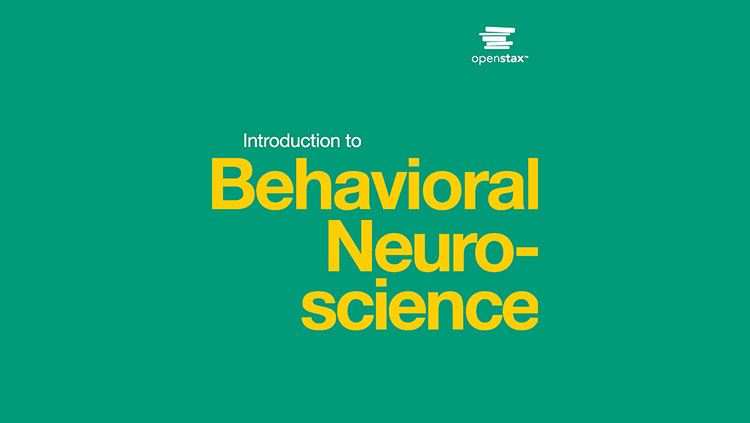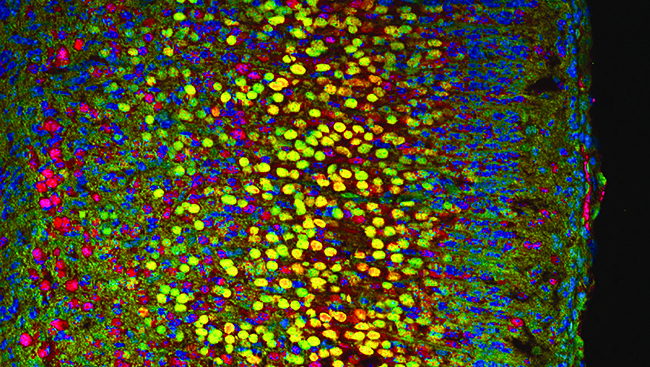
The Federation of European Neuroscience Societies (FENS) and the Society for Neuroscience (SfN) are delighted to announce their strategic collaboration on priority areas, including scientific training and career development. The two organizations recognize the importance of thinking globally about science and the enrichment that comes from a global perspective. By combining their efforts, FENS and SfN aim to further enhance the support provided to their members in today’s complex scientific and political environment.
The FENS Committee on Higher Education and Training (CHET) and the SfN Neuroscience Training Committee (NTC) are aligning their strategies to offer their members opportunities that may not be available through traditional training programs. The two committees will work closely together, exchange in-depth information, share tools, and develop coordinated training activities.
Best Practices in Training
One of the main goals of both NTC and CHET is to identify and establish practices that most effectively serve the training needs of the neuroscience community. This requires programs which address the entire community as well as those that target scientists at specific career stages, from students to advanced investigators.
SfN and FENS share core values, including the aim of ensuring inclusiveness within scientific training at all career stages; however, their distinct experiences in serving their respective communities have also engendered different approaches to respond to the particular needs of their members. This diversity of experiences and strategies will enrich the collaboration by offering sources of complementarity and inspiration. FENS builds on a European tradition with a strong focus on targeted training actions such as hands-on courses, exchange programs, and neuroscience schools that typically target smaller groups of scientists. SfN, meanwhile, has developed training activities with a strong focus on online tools that reach larger audiences. These approaches are synergistic and, as such, provide an excellent foundation on which to base a vibrant training program shared between the two organizations for the greater benefit of the entire neuroscience community.
Challenges We Need to Address: Publish or Perish
SfN and FENS are deeply committed to promoting the highest standard of scientific conduct and integrity. Good conduct can be particularly jeopardized in high-pressure environments. With research becoming increasingly competitive, scientists worldwide are facing great pressure to produce data quickly and publish their results in renowned scientific journals. As an unfortunate consequence of this high-pressure environment, some trainees question their commitment to neuroscience research. Moreover, the increased pace in needing to rapidly publish results can lead to gaps in confirming reproducibility of data before publication. Even more concerning is that pressure to publish might lead to unintentional or intentional scientific misconduct. It is therefore crucial to address such issues early in a scientist’s career, as part of training, and to provide positive examples that encourage young scientists to continue on a research path.
NTC and CHET believe in the value of establishing a framework for discussion on issues related to both the pressure experienced by young researchers worldwide, as well as questions of scientific conduct. In particular, the committees recognize the need to respond to the perceived crises of reproducibility in neuroscience.
As part of their collaborative effort, CHET and NTC will compare and contrast training practices within educational systems of different countries and institutions across Europe and North America. Notably, the lengths and requirements of PhD programs differ greatly across the world. How do these features affect training experiences and research outcome? Consideration of the advantages and disadvantages of graduate programs with strict timelines versus open-ended ones and the different formats of doctoral theses could lead to insights that improve training for doctoral candidates. Furthermore, a comparison of the US and European perspectives on the postdoctoral experience, and striving to identify best practice, may enrich the professional training of both sets of members.
In addition to offering and improving training for the younger generation, NTC and CHET aim to respond to the needs of later-career researchers. Life-long learning may include training in career skills needed for starting and leading a research group, from setting up a laboratory to recruiting top scientists, or teaching group leaders to be good mentors and advisors, which is an area of training emphasized by the European Research Council and the National Academies of Science. Guidance should also be offered to senior researchers whose research activities are curtailed by limited funding. CHET and NTC aim to foster paths by which experienced senior scientists can remain actively involved in research and provide significant benefit to their universities and institutes.
Establishing International Connections
An overarching objective of both FENS and SfN is to facilitate networking among neuroscientists across national boundaries. The two organizations aim to foster an international exchange of ideas among neuroscientists at all career stages and collaboration across the spectrum of technical and conceptual research. Early career researchers particularly need the opportunity to network with more senior scientists and peers to gain support and to ensure development of their talent and leadership capabilities.
Ongoing programs include the FENS-Kavli Network of Excellence, a networking group of young principal investigators, and virtual conferences developed by SfN that enable digital networking among neuroscientists worldwide. While strong bonds may best be formed face-to-face during hands-on courses, digital platforms offer additional opportunities for networking across broader geographical spaces and can connect people that may not be able to attend meetings in person.
CHET and NTC aim to establish a platform where members of both organizations can have meaningful conversations around themes such as research methods and discoveries or questions of how to best train students. A combination of on-site training at scientific meetings and virtual conferences will provide opportunities for exchange between neuroscientists with similar but also with disparate interests.
Staying up-to-date with the latest techniques and developments in the field of neuroscience also requires exposure to different research environments and leading laboratories worldwide. This mobility is a crucial factor both early in a scientist’s career as well as at later stages, and training activities must support this endeavor. NTC and CHET intend to increase the mobility of neuroscientists in Europe and North America by offering training programs that offer expert targeted advice to scientists from the early planning stages and throughout the process of professional and personal integration in a new country. The two committees recognize that obstacles such as a lack of funding, as well as uncertainty about organizational aspects, can be discouraging. We also recognize that scientists at different career stages have different needs with respect to international mobility.
FENS and SfN contribute to mobility by organizing international training programs and both organizations offer various mobility grants, including travel awards that allow FENS members to participate in the SfN annual meeting and vice versa. As part of their collaboration, NTC and CHET aim to provide expertise on mobility not only to their own members but also to the members of each other’s organization, for example, by offering webinars given by individuals who are familiar with the details of moving from one region to another. This may help demystify the process of going abroad and will also address questions on bureaucratic issues such as visa requirements. Personal experiences of moving from one region to another will be shared and will help other neuroscientists to maximize their opportunities. A global network of researchers can provide support to members of both organizations.
Communicating Effectively
An increasing competitiveness for funding requires scientists to present their research findings and ideas in a clear and compelling way in grant proposals, reports, publications, and presentations. FENS and SfN are committed to scientific literacy and providing neuroscience resources to the general public. How do we best educate not only neuroscientists but also the public? How does our increasing knowledge of how the brain works affect the way we approach education? There is an increasing demand for neuroscientists to communicate their research more effectively to the lay public, journalists, and politicians. FENS and SfN will continue to provide advanced teaching in science communication to help scientists in presenting their work to various audiences and to help them better understand the interests of specific groups such as journalists or politicians. A major aim of public engagement is to increase public appreciation of scientific contributions to society. This requires special communication skills to explain research findings in plain and compelling language.
Neuroscientists must also be prepared to publicly discuss ethical issues related to their research. These include questions relating to the use of animal or human subjects in neuroscience research, as well as training in identifying ethical limits of neuroscience research. If they are to become convincing and eloquent advocates for biomedical science, students need to learn, as part of their training, how to speak about such issues openly and confidently.
The two organizations believe that an open discussion on ethical issues is crucial for raising awareness and improving the understanding of how and why neuroscience research is carried out. Because such questions are dealt with quite differently in different regions of the world, the US and European communities may learn from each other’s experiences and strategies on how to address ethical issues in productive ways.
Looking Forward: Next Steps
Through stronger collaboration and partnership, FENS and SfN are demonstrating their commitment to serving their communities in the most effective way and to ensuring that the needs of members at all career stages are addressed. This will also involve the sharing of demographic data related to training and career development, which may provide global insights about best practices in training.
The collaboration between SfN and FENS will, on the one hand, include setting up exchange programmes to enable SfN members to join hands-on training courses offered by FENS. On the other hand, SfN’s online platform, Neuronline, will be available to FENS members, which will include for example, several online events each year targeted specifically at a European audience.
Importantly, in addition to sharing existing training programs, CHET and NTC intend to develop new joint activities and collaborative working groups that serve both communities. These may include digital learning materials, webinars and virtual discussion forums but also in-person courses that address the needs of the neuroscience community within the areas of networking, mobility, communications, and life-long learning.
Acknowledgements
This editorial would not have been written without the most valuable help of Lisa Vincenz Donnelly. The authors, on behalf of their organizations SfN and FENS and the associated committees, thank her for the preparation of the manuscript, which is based on her interviews with the four authors.
Witter, M.P., Karagogeos, D., Van Bockstaele, E., Segal, R. A transatlantic cooperation for enriched neuroscience training. Eur J Neurosci 2018, 1-3; DOI: 10.1111/EJN.14056







